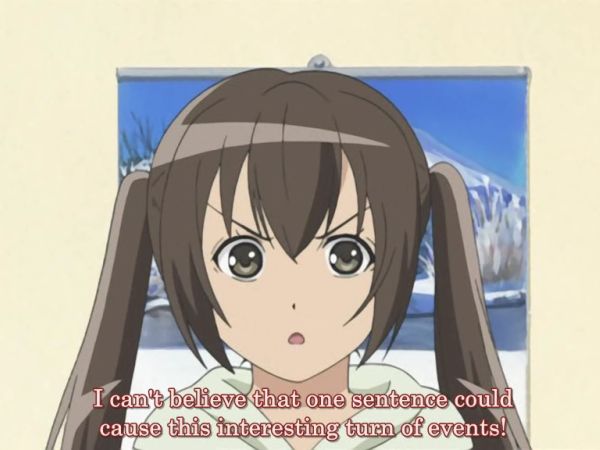Tuesday 16 September 2008

|
Pic of the day: It was in fact not much more than one sentence that caused this interesting turn of events. A LiveJournal friend, ironphoenix, posted a short entry last month with a link to an article about the man who invented the SuperMemo method. Then all this happened, and keeps happening. Mnemosyne 1 month review(I wrote this on LiveJournal too, if it seems TOO familiar.) Today it is one month since I installed Mnemosyne, the free, bare-bones open source competitor to SuperMemo. The original program is still available at a comfortable price, and I may well buy it simply to reward the guy who invented the first practical program for learning through spaced repetition. (It also has a lot more functions and statistics, and supports incremental reading of articles where Mnemosyne is best suited for existing lists of facts.) I tested it on one of the hardest tasks I could think of, namely learning elements of Japanese writing. (I know a tiny bit of Japanese from anime and from an introductory program that uses normal letters (romaji) to spell out common phrases.) I did not do parallel studies using other methods, so I cannot verify or falsify the claims of SuperMemo being 10-50 times more efficient. But it certainly is efficient, impressively so. The most amazing part is just how little time and effort it takes each day. The price of this is exactly the "each day" part. It requires daily braintenance. You can skip a day now and then, but don't even think of going on vacation without bringing it along on a memory stick or something. (The program is very portable and has a tool to synchronize installations on several computers.) I haven't skipped any days yet, which may be why I am so favorably impressed. The first week or perhaps ten days are a bit chaotic, as the program calibrates itself to your brain and the difficulty of your chosen subject matter. You should start gently - I did, and even then this was the only time that was a bit frustrating. Now I find myself adding more kanji and words than I had planned, just to keep it worth my while to open it every day. Mnemosyne is deceptively simple. Write the things you want to learn into flash cards. The program will decide a future date on which to flash them to you, depending on its experience with you and the category to which they belong. (If you are a new user, it uses default values.) At that time, you mentally try to recognize the answer, which is then shown. You rate how well you remembered it, on a scale from 0 to 5. This value is fed back into the system and determines how long until next flash. That's it. Generally, the delay gets exponentially longer, but it is modified by your feedback. Obviously lying to the machine would be really, really stupid, but it is sometimes hard to give the exact right answer. What if you had narrowed it down to two possible answers, and in the end you picked the right one? Had you forgotten it or just barely remembered it? Luckily the program will correct such things over time: If you constantly under-estimate yourself, the repetitions will become trivially easy over time. Presumably if you tend toward boasting, you will find the questions growing fiendishly hard and eventually have to admit defeat, at which point it will become easier next time. Oh, and you are expected to have forgotten some of the cards each time. The key to max efficiency is to remind you just when you are about to forget, but this is obviously not possible. If you have forgotten one out of ten items, the program is satisfied with the timing: Obviously you must have just recently forgotten that one thing, since you remember the rest, and obviously you must be on the verge of forgetting the other nine since you already forgot the one. And it's not like you have forgotten it for ever: The program tests that you have remembered the card again before it clears you for the day, and also keeps tab on it for the future to show the more forgettable cards sooner. Conversely, if you remember everything, Mnemosyne will wait longer in the future. The SuperMemo website says that those who quit tend to do so during the first month, usually after starting too ambitiously. Those who remain after a month tend to become fanatics. I guess that is correct in my case. They also tend to be almost exclusively men. I would say that too is correct in my case, although I won't speculate in public about the reason for the gender difference. |
Yesterday <-- This month --> Tomorrow?